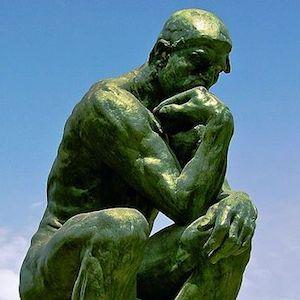From a young age, we teach science to students all wrong.
Like history textbooks, science textbooks are filled almost exclusively with facts. Facts are fine -- and they are necessary to learn new facts -- but having a head full of facts does not make somebody a scientist. Arguably, in the age of Wikipedia, memorizing information is not an efficient use of time; instead, we can outsource our memory to the cloud and use our precious neurons for other things.
Therefore, the answer to the question posed by The Atlantic, "Is Google Making Us Stupid?" is a resounding, "No!" What's making us stupid is our politically partisan tribalism combined with an inability to apply skepticism in our daily lives.
Why?... Why?... Why?
When we were kids, we were natural skeptics. We tested our parents' patience with an infinitely long series of "Why?" questions. Why does the moon glow? Because it reflects the sun's light. Why? Because the sun is very bright. Why? Because it's very hot. Why? Because... err... shut up, kid.
This natural skeptic phase that we go through as children seems to fade as we get older. We stop asking, "Why?" possibly because the older people we ask usually don't know the answer. Education reinforces the problem, mainly by requiring students to memorize a bunch of stuff without ever stopping to ask, "Why?" (Unfortunately, the most commonly asked why question in high school and college might be, "Why do we have to learn this?")
That's a shame because, "Why?" -- if asked earnestly with a pure intention to pursue knowledge -- is one of the most important questions we can ask in this life. Specifically, the question all of us ought to ask more frequently is, "How do we know what we claim to know?"
The Most Important Question in Science
"How do we know what we claim to know?" is quite easily the most important question in science. In fact, the scientific method is designed precisely to answer that question. Through a process of careful observation, hypothesizing, and tightly controlled experimentation, scientists have been able to explain why they know what they claim to know for hundreds of years. Rigorously following this procedure is what separates science from all other disciplines.
One of the crowning achievements of the scientific method is the Periodic Table of Elements. Through careful observation, chemists knew that the elements had repetitive characteristics. Every so often, one element resembled another element. They knew there had to be a pattern, but they couldn't figure out what it was.
Then, a scraggly-haired, Rasputin-looking Russian named Dmitri Mendeleev came along. Not only did he figure out the pattern of the elements, but he identified "missing elements" -- i.e., elements he knew that had to exist even though they had not yet been discovered. He could even describe what characteristics they would have. His hypotheses were spot-on. Over time, the missing elements were found, and the Periodic Table was completed.
Applying Skepticism to Your Daily Life
Most aspects of our lives cannot be scrutinized with the scientific method. But what we can do is apply the underlying philosophy of the scientific method to our daily lives. And that philosophy is one of skepticism.
Frustratingly, many self-proclaimed skeptics are anything but. As Ross Pomeroy argues at RealClearScience, these "skeptics" are simply conspiratorially minded dupes who are willing to believe just about anything other than the truth. Skepticism does not mean being contrarian for the sake of being contrarian.
No, at its finest, skepticism is a form of intellectual honesty. It helps prevent us from succumbing to confirmation bias. Importantly, it helps us hold our intellectual and political allies to the same standard to which we hold our opponents.
In a world of fake news, few questions are more important than, "How do you know what you claim to know?" We should ask it often.




